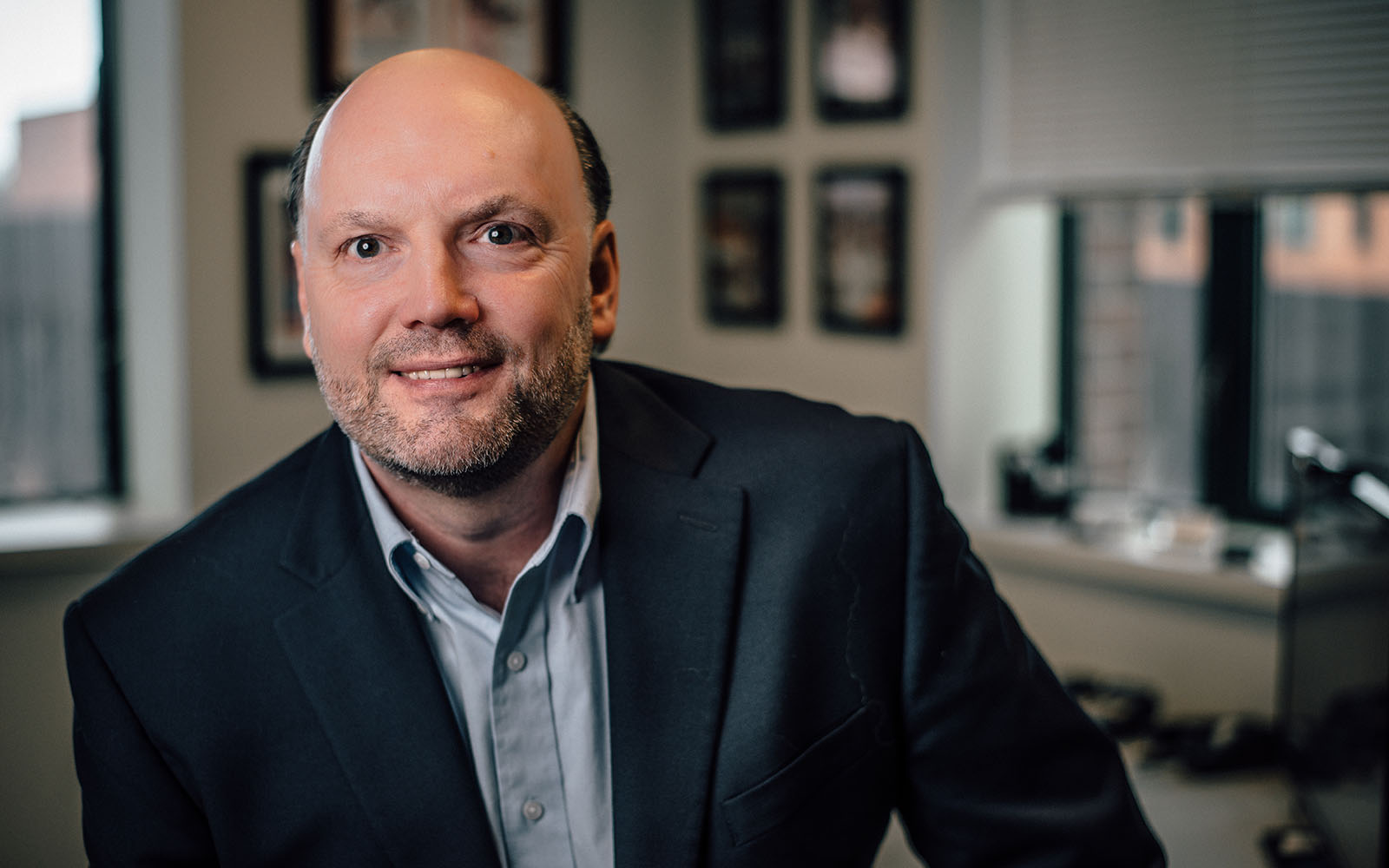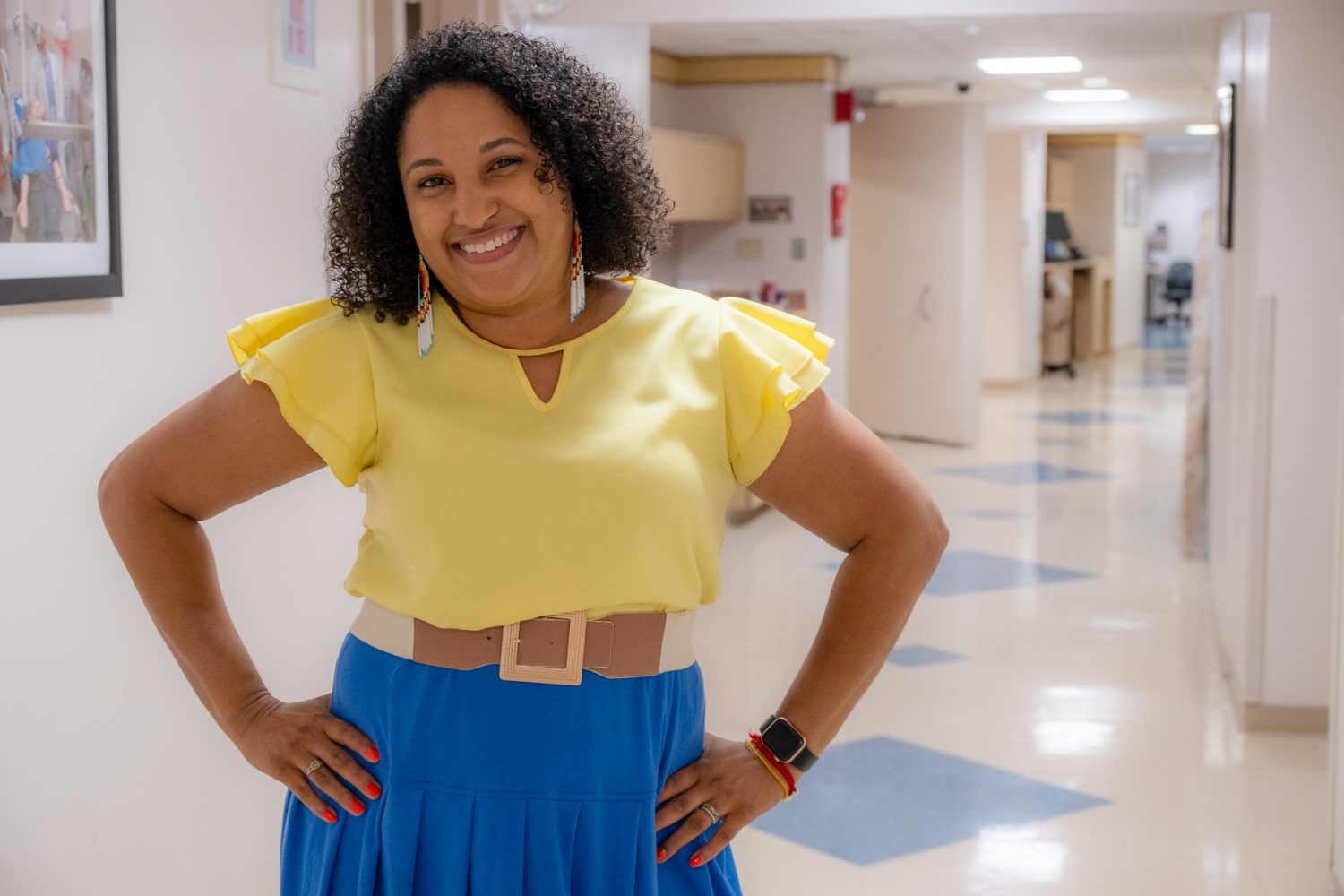A graduate student in the UConn College of Liberal Arts and Sciences was named a 2020 Robert Wood Johnson Foundation Health Policy Research Scholar for her research and leadership in making healthcare more accessible to underserved communities.
Jamilah George, a third-year doctoral student in psychological sciences, represents UConn in a cohort of 58 students from across the country, and is one of four students from Connecticut.
The Robert Wood Johnson Foundation’s Health Policy Research Scholars (HPRS) program is a national leadership program for doctoral students from populations underrepresented in doctoral disciplines, or from marginalized backgrounds, who are interested in creating equitable solutions to complex health challenges.
“It’s so important for me as a Black woman to have received this award because I represent the families and community members that I serve,” George says. “Given my areas of focus, the research that I conduct must be informed by the experiences of marginalized individuals.”
The program trains students to apply their research to enact public policy changes that build healthier, more equitable communities, and includes a stipend of up to $30,000 per year for awardees.
As part of the program, George will take online courses such as public policy, dissemination, health equity, and population health through the Johns Hopkins Bloomberg School of Public Health to supplement her clinical training.
George’s research focuses on mental health disparities, obsessive-compulsive disorder (OCD), and post-traumatic stress disorder (PTSD), including racial trauma, and the psychological and physiological impact of racism.

She is currently part of a clinical drug trial which examines the efficacy of psychedelic-assisted therapy for treatment-resistant PTSD among people color.
What helped George stand out among the national pool of applicants was her dedication to using innovative “neuromodulation techniques,” or technology that uses neurological mechanisms to target specific brain regions.
“Advanced neurological techniques are often not available to people who are poor or to people of color,” George says. “What I want to do is become an expert in developing a neuromodulation treatment modality that can then be implemented in these communities.”
One such technique is transcranial direct stimulation, or tDCS, a non-invasive stimulation that delivers constant, low-level currents to targeted areas of the brain via electrodes placed on the head. George is most interested in the prefrontal cortex which is implicated in disorders like OCD and PTSD.
“Often, in communities of color, mental health discussions are stigmatized,” George says. “People of color may be more likely to seek counsel from religious leaders, or to keep their personal issues private, within the family. As a result, we see fewer people of color seeking treatment on their own.”
George hopes that her work with tDCS can influence the progression of mental health treatment of obsessive-compulsive and related disorders within underserved populations.
“Because [tDCS equipment] is transportable, it’s more easily accessible than an fMRI machine, for example,” she says. “I imagine having this equipment packed in a bag, enabling me to go into poor and underserved communities and bring the treatment to them,” she says.
“But the technology is expensive, difficult to acquire, and has not yet been used specifically as an intervention study among marginalized communities,” George says.
The HPRS program provides the financial assistance necessary to propel George’s research toward the development of an experimental design.
She has support from faculty members in the Department Psychological Sciences who are helping her formulate an experimental design that can test her hypotheses.
“If I have success in the use of tDCS to treat OCD, then I can bring it into these communities, which will hopefully alleviate their symptoms and help them to achieve a better overall quality of life,” George says.



